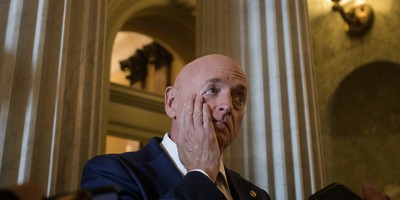This month, our nation has two pivotal anniversaries: the 150th anniversary of the Gettysburg Address by President Abraham Lincoln (Nov. 19), and the 50th anniversary of the assassination of President John F. Kennedy (Nov. 22). The first anniversary reflects the core message of remembrance, forgiveness, rebuilding and honor. The second, the assassination of a president who embodied youth and hope, reminds us how an instant can not only end the life of an individual, but upend a nation.
The Gettysburg Address is one of the most well-known, and often memorized speeches. Lincoln was not the main speaker at the dedication of the Battlefield, but his words have influenced generations. In the speech, which runs only 278 words, Lincoln never said "I" or "me;" instead, he took his audience from the past to the present, and in doing so, provided a glimpse into the future of our nation and the role of its citizens in its development. It reminds us that, as the beneficiaries of others' sacrifices, we must seek to ensure they will be remembered and honored through our actions.
"It is rather for us to be here dedicated to the great task remaining before us -- that from these honored dead we take increased devotion to that cause for which they gave the last full measure of devotion -- that we here highly resolve that these dead shall not have died in vain -- that this nation, under God, shall have a new birth of freedom -- and that government of the people," Lincoln closes, "by the people, for the people, shall not perish from the earth."
President John F. Kennedy, the youngest president elected, had a 3-year-old daughter and an infant son who had been born between Election Day and inauguration. He symbolized a young, vibrant America. "Above all, Kennedy held out such promise of hope," wrote historian Arthur Schlesinger, Jr., who served as Kennedy's special assistant. "Euphoria reigned; we thought for a moment that the world was plastic and the future unlimited."
Recommended
During his inaugural address, Kennedy, like Lincoln, took his audience from the past to the future and outlined the role of our citizens. He invoked the revolution, spoke of a "new generation of Americans -- proud of our ancient heritage." He said that we would "pay any price ... in order to assure the survival and the success of liberty."
While Kennedy mentioned a quest for peace, his comments were tempered with the promise of military might. "We dare not tempt them with weakness. For only when our arms are sufficient beyond doubt can we be certain beyond doubt that they will never be employed."
Kennedy, who supported government programs to help those in need, was clear about overall expectations, declaring, "In the long history of the world, only a few generations have been granted the role of defending freedom in its hour of maximum danger. I do not shrink from this responsibility; I welcome it. I do not believe that any of us would exchange places with any other people or any other generation. The energy, the faith, the devotion which we bring to this endeavor will light our country and all who serve it, and the glow from the fire can truly light the world."
Continuing with the words that echo Lincoln's refrain that, "we take increased devotion to that cause for which they gave the last full measure of devotion -- that we here highly resolve that these dead shall not have died in vain," Kennedy challenged with the phrase, " And so, my fellow Americans, ask not what your country can do for you; ask what you can do for your country."
Both Lincoln and Kennedy invoked God's assistance, while asking us to be more, to do more. Perhaps Kennedy's closing provides a way for us to remember these anniversaries with action.
"Let us go forth to lead the land we love, asking His blessing and His help, but knowing that here on Earth," he closed, "God's work must truly be our own."

























Join the conversation as a VIP Member